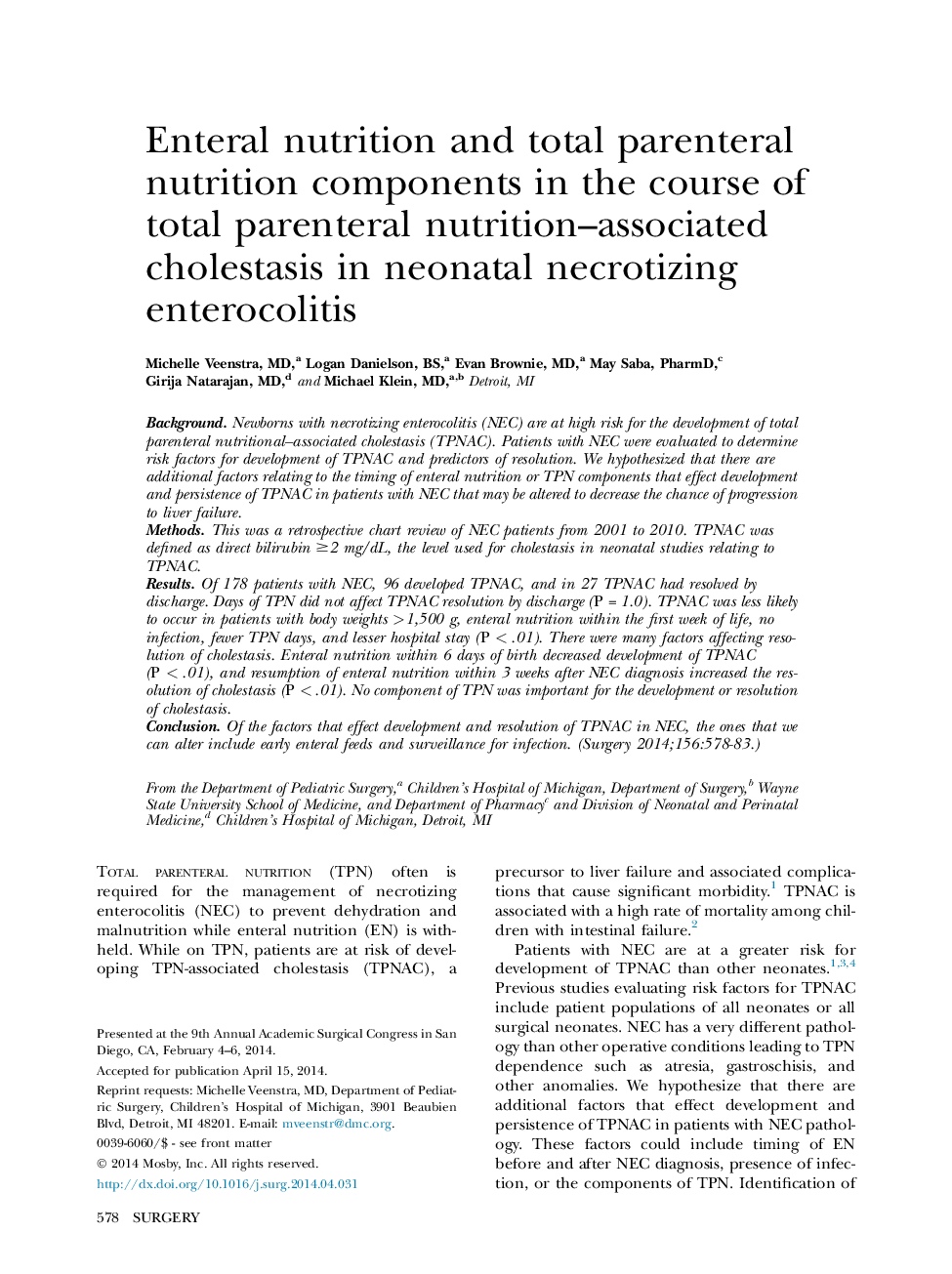| Article ID | Journal | Published Year | Pages | File Type |
|---|---|---|---|---|
| 4307127 | Surgery | 2014 | 6 Pages |
BackgroundNewborns with necrotizing enterocolitis (NEC) are at high risk for the development of total parenteral nutritional–associated cholestasis (TPNAC). Patients with NEC were evaluated to determine risk factors for development of TPNAC and predictors of resolution. We hypothesized that there are additional factors relating to the timing of enteral nutrition or TPN components that effect development and persistence of TPNAC in patients with NEC that may be altered to decrease the chance of progression to liver failure.MethodsThis was a retrospective chart review of NEC patients from 2001 to 2010. TPNAC was defined as direct bilirubin ≥2 mg/dL, the level used for cholestasis in neonatal studies relating to TPNAC.ResultsOf 178 patients with NEC, 96 developed TPNAC, and in 27 TPNAC had resolved by discharge. Days of TPN did not affect TPNAC resolution by discharge (P = 1.0). TPNAC was less likely to occur in patients with body weights >1,500 g, enteral nutrition within the first week of life, no infection, fewer TPN days, and lesser hospital stay (P < .01). There were many factors affecting resolution of cholestasis. Enteral nutrition within 6 days of birth decreased development of TPNAC (P < .01), and resumption of enteral nutrition within 3 weeks after NEC diagnosis increased the resolution of cholestasis (P < .01). No component of TPN was important for the development or resolution of cholestasis.ConclusionOf the factors that effect development and resolution of TPNAC in NEC, the ones that we can alter include early enteral feeds and surveillance for infection.
